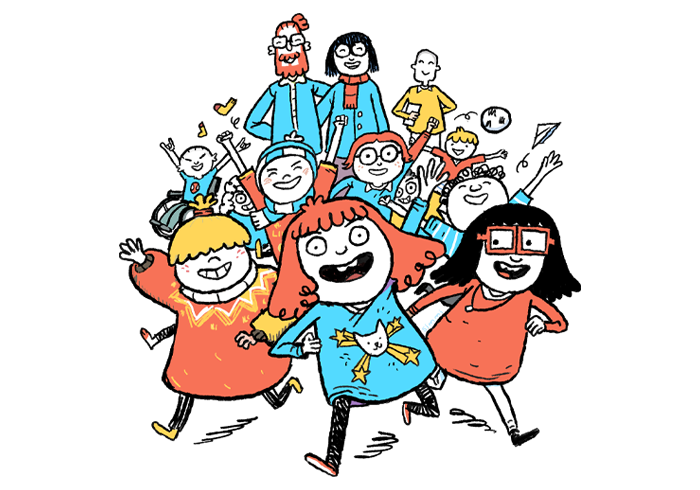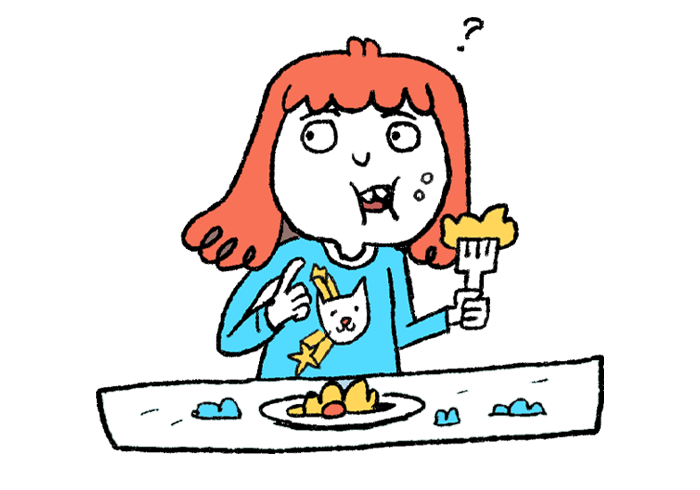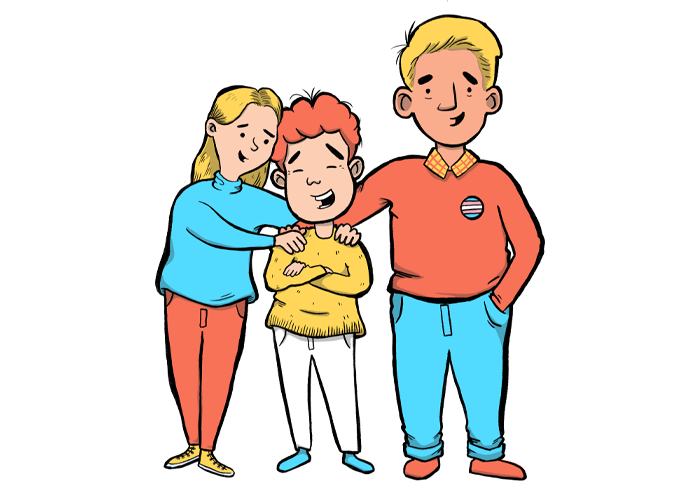The school

Austurbæjarskóli is a comprehensive primary school for students from grades 1 to 10, located at Barónsstígur, Reykjavík. The school has about 350 students, with an average of two classes per grade level. The school aims to tailor the education according to the nature and development of each student.
Austurbæjarskóli emphasizes growth mindset, open-mindedness, well-being and a desire for continuous improvement.
This emphasizes a growth mindset, open-mindedness, well-being, and a commitment to ongoing improvement. We develop individuals who trust in their abilities and confidently embrace new challenges while nurturing their talents and skills.
Recreation
Draumaland After-School Program is for children in 1st to 4th grade at Austurbæjarskóli, and 100og1 Youth Center offers a variety of fun activities for children and adolescents.
School administrators
Principal: Kristín Jóhannesdóttir
Assistant Principal: Sigríður Valdimarsdóttir
Projects
Construction to renovate the basketball court is ongoing at Austurbæjarskóli.
School activities
School policy
Austurbæjarskóli’s policy adheres to laws, regulations, international agreements, the City of Reykjavík’s educational policy, and the school’s social environment. The school guarantees equal access to education regardless of gender, nationality, social background, status, or religion.
The school's vision is: A progressive school for all. This emphasizes a growth mindset, open-mindedness, well-being, and a commitment to ongoing improvement. This emphasizes a growth mindset, open-mindedness, well-being, and a commitment to ongoing improvement. We develop individuals who trust in their abilities and confidently embrace new challenges while nurturing their talents and skills. Austurbæjarskóli aims to be at the forefront of diverse teaching and learning methods, ensuring equal access to education for all. We focus on guiding students’ learning paths, building on their experiences, encouraging cooperation, and fostering ambition and achievement.
Austurbæjarskóli is a workplace for innovative educators who demonstrate ambition, prioritize students’ well-being, and strive to meet the needs of children and adolescents.
The school's motto is: growth – open-mindedness – well-being – will. These principles are embedded in all interactions and activities within the school community. To achieve this, Austurbæjarskóli staff, students, parents and recreational activity staff have agreed on the following policy:
Growth:
The diversity of Austurbæjarskóli's student body is a significant strength for the school community, prioritizing upbringing, progress, education and student well-being. The school promotes a growth mindset, cultivating talents and enhancing skills. We emphasize progress and formative assessment with targeted, constructive feedback. Students should influence and express opinions about their learning, understand their current position, goals and what constitutes good results. Learning is personalized but based on cooperation, problem-solving, interdisciplinary work and diverse teaching methods.
Open-mindedness:
Open-mindedness is Austurbæjarskóli's motto, reflecting the diverse individuals with varied knowledge and experiences in the school. We respect diversity, and students work on projects that develop cooperation skills, enhance critical thinking, foster inclusivity, increase self-awareness, and prepare them for active participation in a democratic society.
Well-being:
Well-being is built on a positive school culture where joy, trust, kindness, respect, and equality are reflected in daily interactions. Austurbæjarskóli is a health-promoting primary school emphasizing mental, social and physical health in a creative and warm learning environment. The school works systematically to strengthen students' self-image and resilience. The school emphasizes positive interactions and works against prejudice and bullying.
The school shares values and vision that foster a strong school culture. Students, staff, parents, and recreation staff all care for the school's welfare and work toward the same goals.
Will:
The school focuses on motivating the entire school community to improve, move forward, and develop creatively to support student learning. This is achieved through strong creative and practical education, collaboration with recreation programs, parents, and community partners, as well as environmental projects, field studies, vocational training, and community initiatives.
Austurbæjarskóli possesses several distinctive qualities. The school is in a historic building in Reykjavík's city center. Since its establishment, it has maintained ambitious educational programs that meet contemporary needs. The school's strength lies in its diverse students, ambitious staff, strong parent community, and dynamic recreational activities.
School rules
Operational plan
What's next for Austurbæjarskóli? You can find several items in the operational plan, including the school's policy for the previous year, teaching planning, and much more.
School curriculum
Do you want to know more about Austurbæjarskóli's philosophy and daily operations? In the school curriculum, you'll find detailed information about the school's philosophical emphasis and approach to learning and work.
- View curriculum
School history
Austurbæjarskóli opened in fall 1930. Previously, the school by Tjörnin, later called Miðbæjarskólinn, was the city's main school. The decade from 1920 to 1930 was spent preparing and building the school on eastern Skólavörðuholt, initially called Nýi barnaskólinn. Sigurður Guðmundsson, master builder, designed and oversaw the construction. Austurbæjarskóli is the first building in Reykjavík heated with thermal spring water. Ásmundur Sveinsson, sculptor, created reliefs above both main entrances and the east gable doors. The year the school opened, compulsory education age was lowered by two years, with children starting school at age 8. The first principal was Sigurður Ó. Thorlacius, and 32 teachers worked at the school. The school had 30 standard classrooms. It also had many specialized facilities, including an art studio, teaching kitchen, woodworking shop, swimming pool, gymnasium, girls’ handicraft room, assembly hall for events (such as Christmas parties), a movie screening room, and a music hall. The school also had dedicated science and geography classrooms, fully equipped with teaching materials. This led to the adoption of more flexible and progressive teaching methods. From the start, the formal “you” (þér) was abandoned in favor of informal address (þú), and children entered the school freely instead of lining up outside. The principal, a highly educated and passionate educator, assembled a team of well-qualified teachers. Workbook-based learning and student collaboration were introduced. There was a lack of textbooks and other reading materials for children. Many Austurbæjarskóli teachers were prolific authors who wrote diverse materials for children. Notable authors include Jóhannes úr Kötlum, Gunnar M. Magnúss, Ragnheiður Jónsdóttir, Vilborg Dagbjartsdóttir and Stefán Jónsson. In the years following 1950, the student population peaked at 1,839. Students were divided into up to 11 divisions per grade level. Austurbæjarskóli now has over 400 students aged 6-15 in 21 classes. There are 79 employees. The school has been single-session since fall 1996. The school building and grounds have undergone extensive renovation in recent years. The architect Vilhjálmur Hjálmarsson has led the project, redesigning this protected building and adapting it to modern requirements while respecting its historical value. A 320-square-meter extension south of the school opened in January 2000, expanding the total school area to 6,717 square meters.
Primary school meals
School meals are free for the 2025-2026 school year. However, the school still needs to track information about allergies and intolerances and limit food waste. Students must register for the school lunch program as before.
Students registered last year will be automatically enrolled. Others need to register. Change the registration at matur.vala.is.

Parent cooperation
We are all in this together, and as the proverb goes it takes a village to raise a child. Reykjavík City schools make targeted efforts to consult with parents and enhance their involvement in schooling. All schools in Reykjavík City have an active parent association.

Assessment of school operations
The goal of assessing and monitoring quality is to provide insight into schooling, its outcomes, and its development.
School districts
There are several school districts in Reykjavík and each child has priority in their district school. Nevertheless, all parents have the choice to apply to any school in the city for their children according to the rules on school districts, applications, and admission. Here is information on which streets belong to Austurbæjarskóli's school district.
School council
Primary schools must have an active school council that serves as a forum for consultation between the principal and the school community on the school operation. The main role of the school council is to be a forum for all representatives of the school community to consult on school matters.